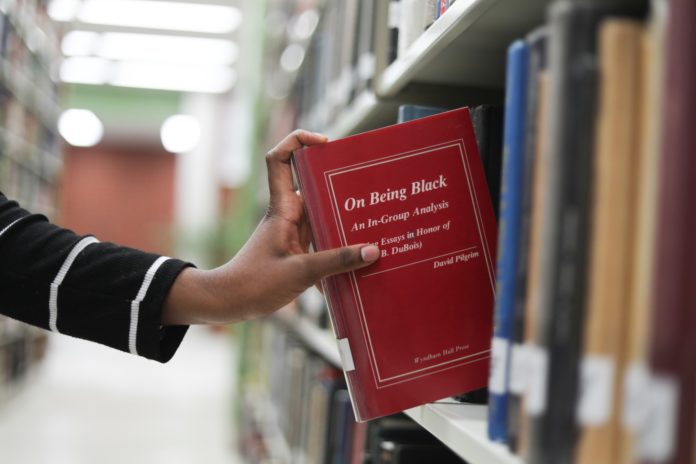
By Jillian Veldey | Reporter
Baylor School of Education’s website states that the program “prepares educators for leadership in a changing world,” and several students of past and present say this preparation includes Black history education.
Several Baylor students said they would have liked a more comprehensive look at Black history during their early school years.
When reflecting on his experiences learning about Black history growing up, Houston junior Dallas Caldwell said he believes there wasn’t as strong of an emphasis on the accomplishments and triumphs of African Americans.
“I was taught Black history growing up throughout school and through my family. The main difference is the context of information that teachers teach you based on curriculum,” Caldwell said. “Yes, it was beneficial to learn the history of slaves, but there was a large neglect to providing the history of African American achievements. Most of my teachers were white and as this was a part of their curriculum, they only taught the basic information needed to teach us, contrasting someone who felt passionate about delivering the information and providing us with more in-depth knowledge of African Americans and their accomplishments.”
Edina, Minn., sophomore John Deutsch said in an email that he thinks it is important to know the successes of African Americans throughout history rather than focusing only on slavery.
“This causes the general public to view African Americans as just an oppressed people, rather than a vibrant, intelligent, beautiful people with a rich cultural heritage,” Deutsch wrote. “With school successes specifically, I think it is important to know because it can inspire other African Americans to get good grades and work hard and help to eliminate stereotypes.”
Baylor’s School of Education is preparing its students to incorporate a detailed look into history in their future classrooms.
2020 Baylor School of Education graduate Quinton Matsuo-Chun, an eighth grade teacher at Cesar Chavez Middle School in Waco ISD, said despite not being able to take courses covering Black history due to scheduling conflicts, his ability to teach history is unchanged. Matsuo-Chun said with a healthy amount of independent research and preparation, he is able to teach his students about Black history, which he places a major emphasis on during Black History Month.
“The best part about education studies at Baylor was that everything we did, or that every material that our professors gave us, could be eventually used in our own classrooms with modification, and our professors went into heavy detail about countering any historical narratives that minimize or remove Black history with ones that empowered it,” Matsuo-Chun said. “In addition, in an effort to make history relevant to students’ lives, we were taught to use classroom decorations, mini-lessons and a certain degree of flexibility with state standards to incorporate students’ cultures into our teaching.”
Houston senior Brittany Bryant said most of what she is learning to teach is determined by state standards (TEKS). In her Methods of Teaching Social Studies course, Bryant said they are taught how to teach historical events surrounding Black figures — for example, how to teach the civil rights movement to younger students who may not have a grasp on more complex issues like segregation and discrimination.
“We talk a lot in our classroom about diversity and how to appreciate our differences and how we still love each other regardless of race,” Bryant said. “I wouldn’t say it’s something I don’t feel trained or qualified enough to teach, it’s more that I just don’t get the opportunity to go in-depth teaching a first grade class.”
Although individual professors stress the importance of teaching the history of Black people in the United States, if a student wants to better equip themselves to do so, they have to take the initiative.
Matsuo-Chun said that it was his relationship and respect for instructors in the program that prepared him to teach Black history.
“They [Mrs. Tori Smith and Dr. Neil Shanks] are both well versed in Black history and the importance of making instruction relevant to students’ social, personal and cultural lives,” Matsuo-Chun said. “The School of Ed teaches you how to teach. I think that the Baylor School of Education is currently doing a fantastic job in equipping aspiring history teachers with the methods and tools to teach Black history, but it’s each student’s prerogative to learn the historical part of the subject.”





